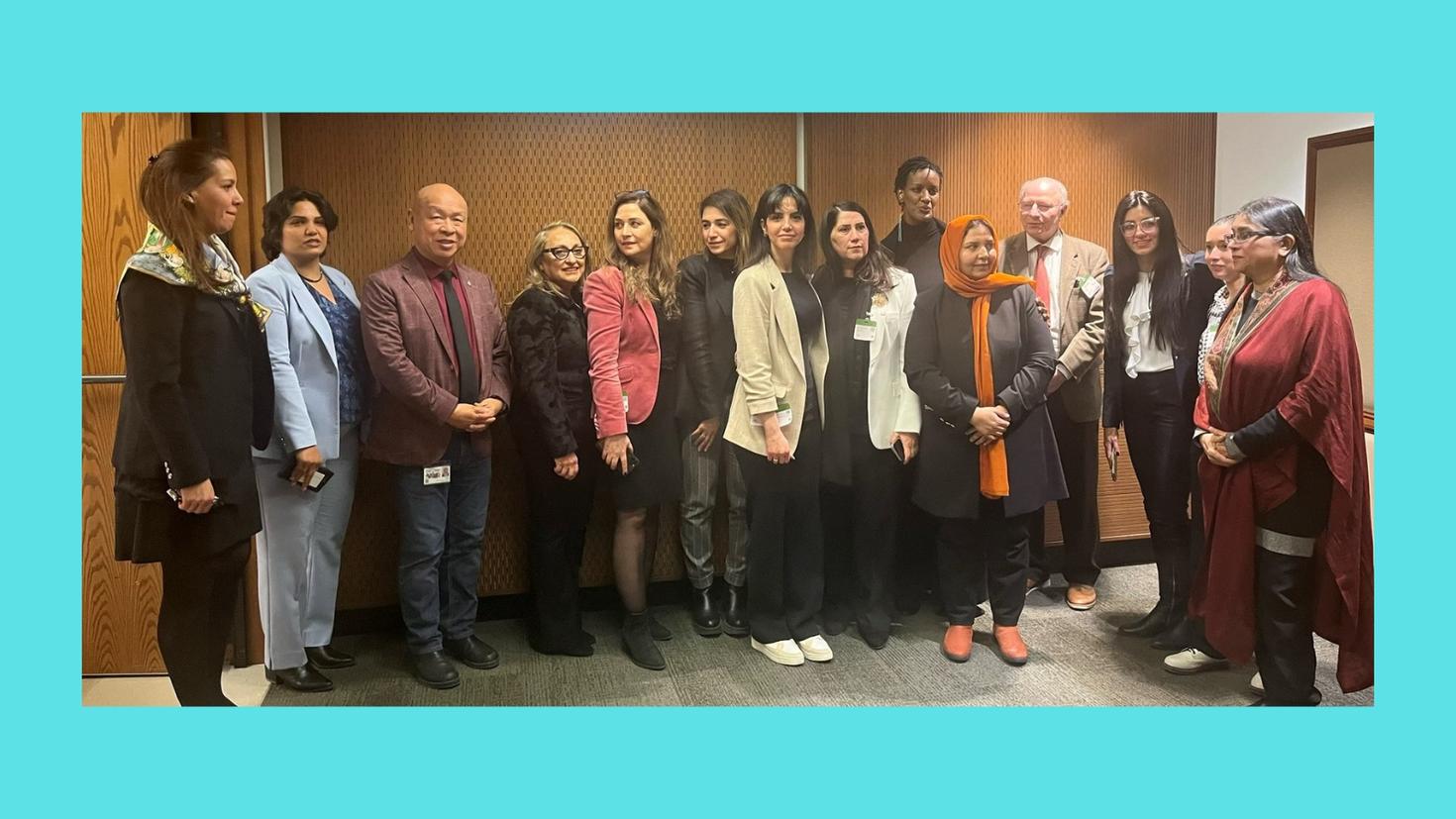To honour these activists and advocates, MP Ali Ehsaasi, who Chairs Canada’s Committee on Foreign Affairs and International Development, hosted a round table discussion on February 29th open to all parliamentarians and staff. HRREC Director Professor John Packer and HRREC Fellow Amanda Dale (Chair of the Board of Directors of the NGO Inter Pares) contributed to the event.
Amanda Dale delivered a substantive statement focusing on the existence of a draft of articles on crimes against humanity that is setting the groundwork for a new Treaty on Crimes Against Humanity, aiming both to expand the scope of Article 7 of the Rome Statute to address individual criminal responsibility and also to spell out in a new treaty State obligations. While the draft for the prospective new treaty is open, there is an opportunity to ensure it reflects contemporary concerns which should include the State-orchestrated and implemented systems of apartheid that relate specifically to gender that have been constituent of power consolidation in Afghanistan. The proposal is to do so under Draft Article 2(2)(h), which defines the crime of apartheid. Current gender protections are inadequate for this grave and systematic rights violation. She emphasised that failing to do so will embolden the volatile and extreme global climate that targets women's equality. Canada, for its part – especially through its stated feminist foreign policy and support for the rules-based international order, can play an important role as a State in backing the eminent international lawyers, academics, women activists, Nobel Laureates, and jurists who have called for support in rewriting the draft articles to reflect this new form of oppression that mimics racial apartheid in all its composite crimes and harms, but which is inadequately captured in current gender protections.
Director Packer the recalled that it is over half a century since (racial) apartheid was categorized as an international crime and that there is no moral or other sensible reason to exclude the systemic, institutionalized oppression of women from the same category of prohibited conduct: gender apartheid. Indeed, it seems an obvious matter for which Canada should not hesitate to join others in support and could, and arguably should, lead. For what is a “feminist foreign policy”, Professor Packer asked, if not one that unequivocally and loudly rejects gender apartheid?
Professor Packer and Amanda Dale were joined by Ketty Nivyabandi, Secretary General of Amnesty International Canada (English Section), who concluded the invited addresses. There followed remarks shared by a number of the assembled women activists and advocates, including testimonies from their own experiences and recent arrivals.
